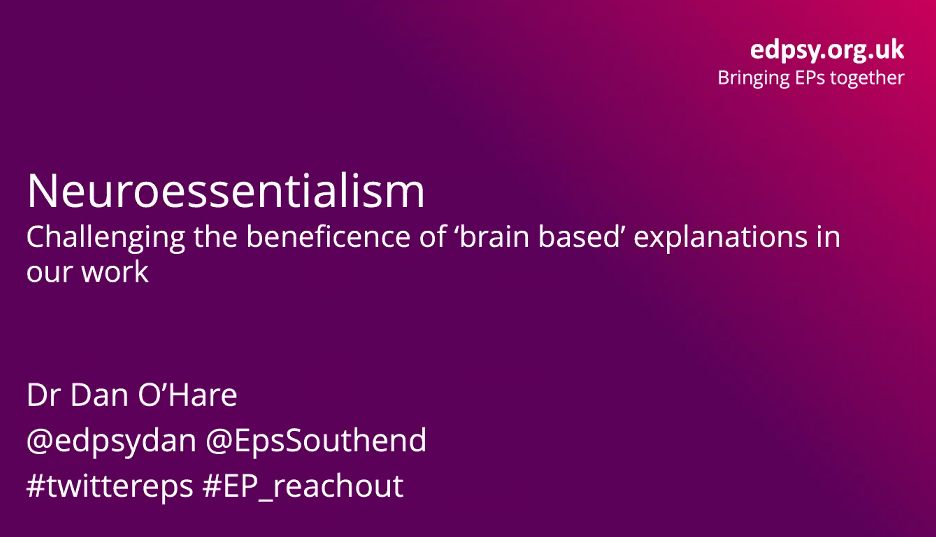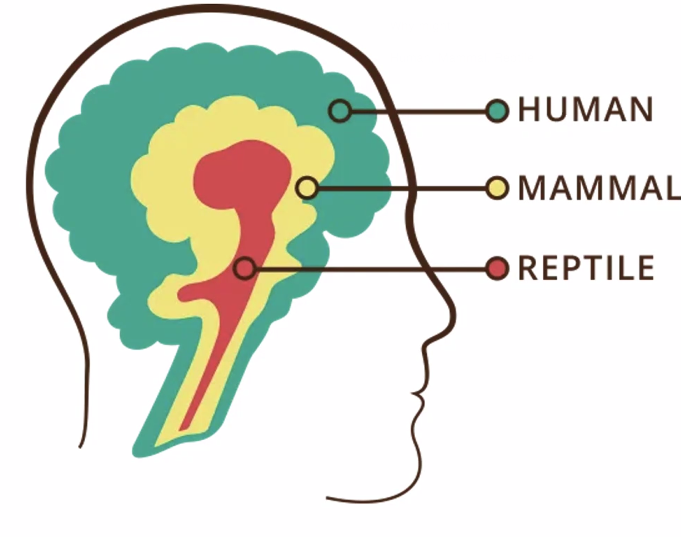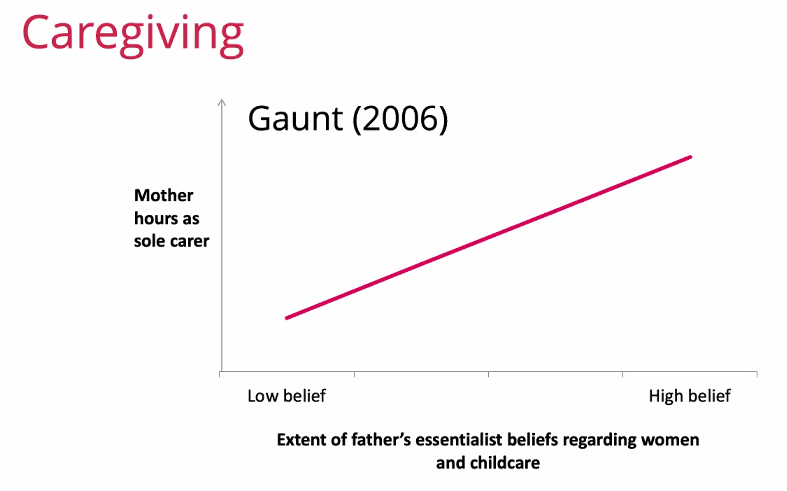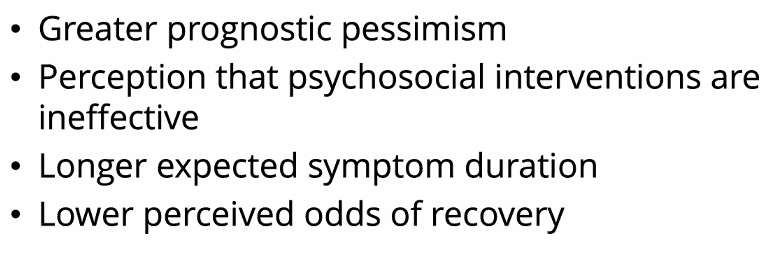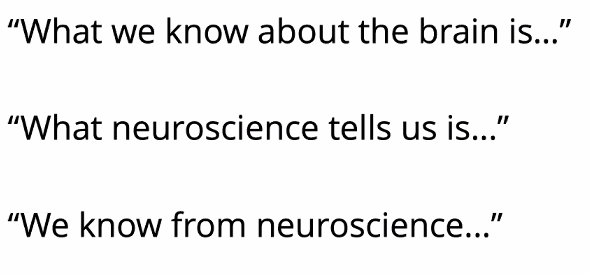So... why might talking about the brain not be the best idea.
We are psychologists right?
#TwitterEPs @edpsydan
We are psychologists right?
#TwitterEPs @edpsydan
Ok, so, starting with all the "isms" (surely to move on to some schisms?)
Definition time...
Definition time...
Triune brain theory (1949)
Assumption that development proceeds in a hierarchy. Brain develops over evolutionary stages.
"A fundamental misunderstanding of evolution" (not linear, not always about progress).
"A human brain is not more evolved than a croc brain"
Assumption that development proceeds in a hierarchy. Brain develops over evolutionary stages.
"A fundamental misunderstanding of evolution" (not linear, not always about progress).
"A human brain is not more evolved than a croc brain"
Question: How can we balance useful metaphor with accurately reflecting theory?
"Bioessentialism is a form of biological determinism"
... the belief that human personality is innate.
What effects might this belief have?
... acorrelation between bioessentialism and lower support for social justice (Yalcinkaya et al 2017)
... the belief that human personality is innate.
What effects might this belief have?
... acorrelation between bioessentialism and lower support for social justice (Yalcinkaya et al 2017)
"Women are just better at caregiving"... unsurprisingly correlated with fathers giving less care to children.
But the opposite was also true.
Dan highlights how bioessentialism can interact with our social behaviour.
But the opposite was also true.
Dan highlights how bioessentialism can interact with our social behaviour.
Neurorealism...
If we talk about the brain it becomes really hard to critique or talk further about a concept (Gruber et al, 2017)
We also see the inclusion of fMRI images reduces professional criticality of research more broadly (also see Dan's thesis)
If we talk about the brain it becomes really hard to critique or talk further about a concept (Gruber et al, 2017)
We also see the inclusion of fMRI images reduces professional criticality of research more broadly (also see Dan's thesis)
If neurorealism/essentialism is often evoked with beneficial aims (e.g. understanding 'difficult behaviour') what might the issue be?
Well, some research into depression shows r with lower perceived odds of recovery among service users AND ALSO reduced empathy among clinicians
Well, some research into depression shows r with lower perceived odds of recovery among service users AND ALSO reduced empathy among clinicians
... A meta issue with reinforcing "within person" narratives.
... and we see this in thinking about the 'brain as capital' - do some puzzles, improve your working memory (ahem).
Perhaps we need to consider adult mediation as opposed to training brains? (my point)
... and we see this in thinking about the 'brain as capital' - do some puzzles, improve your working memory (ahem).
Perhaps we need to consider adult mediation as opposed to training brains? (my point)
"What we know"
EPs need to keep it critical.
You know, when we hear these phrases we need to engage our thinking brains (what, what?)
EPs need to keep it critical.
You know, when we hear these phrases we need to engage our thinking brains (what, what?)
Mmm. Now we are talking about polyvagal theory.
I mean, there is A LOT of complexity in the area (biology and psychology).
And, my point, it takes time and effort to know a research base enough to talk with authority (or understand with authority).
I mean, there is A LOT of complexity in the area (biology and psychology).
And, my point, it takes time and effort to know a research base enough to talk with authority (or understand with authority).
A concern here about the time applied psychologists have for research and learning alongside their practice...
I wonder what EPS' can do to support this?
I wonder what EPS' can do to support this?
Mmmm. Great point.
Instead of "training the brain" why don't we focus on particular skills?
Instead of "training the brain" why don't we focus on particular skills?
An important caveat:
It is prob not the neuroscientists who are extrapolating findings...
There is a macro point here about communication of findings and what happens 'after a study is published'
It is prob not the neuroscientists who are extrapolating findings...
There is a macro point here about communication of findings and what happens 'after a study is published'
A take away for me:
Busy environments and anxious adults can lead towards wanting "simple explanations" and "quick solutions".
I think that these discourses about the brain feed into that.
But, there can be a hidden compromise for the perceived certainty.
Busy environments and anxious adults can lead towards wanting "simple explanations" and "quick solutions".
I think that these discourses about the brain feed into that.
But, there can be a hidden compromise for the perceived certainty.
[also, power dynamics...]

 Read on Twitter
Read on Twitter